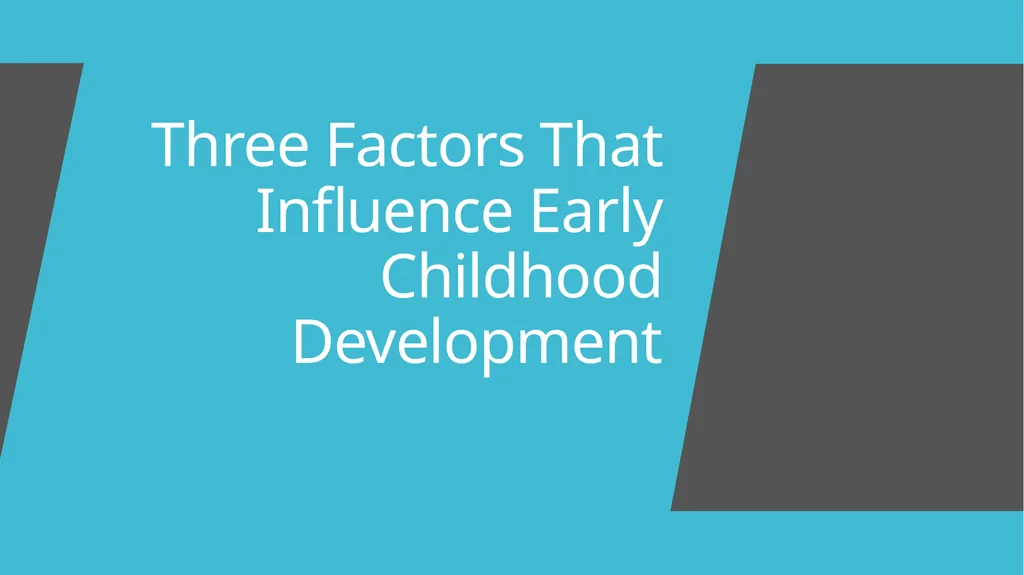
Author : karlyn-bohler | Published Date : 2025-05-12
Description: Three Factors That Influence Early Childhood Development Stress Can be caused by positive changes but is usually followed by or associated with negative changes. Excessive stress can change a childs personality. Stressor examples: pain,Download Presentation The PPT/PDF document "" is the property of its rightful owner. Permission is granted to download and print the materials on this website for personal, non-commercial use only, and to display it on your personal computer provided you do not modify the materials and that you retain all copyright notices contained in the materials. By downloading content from our website, you accept the terms of this agreement.
Here is the link to download the presentation.
"Three Factors That Influence Early Childhood"The content belongs to its owner. You may download and print it for personal use, without modification, and keep all copyright notices. By downloading, you agree to these terms.













